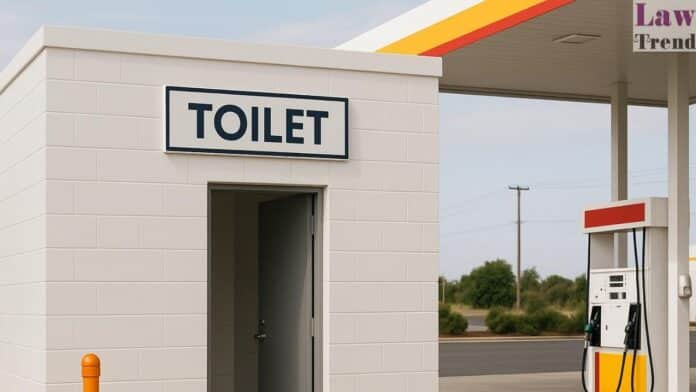The Kerala High Court has directed the State Government and local self-government bodies not to compel private petroleum outlets to allow their toilets to be used by the general public. The interim relief came in response to a writ petition filed by the Petroleum Traders Welfare and Legal Service Society along with five individual petroleum retailers.
Justice C.S. Dias, while passing the order on Wednesday, noted the serious operational and safety concerns raised by the petitioners, and restrained authorities from designating the fuel station toilets as public conveniences under the Swachh Bharat Mission or any other initiative.
The petitioners approached the High Court challenging the actions of certain municipal bodies, which had allegedly begun treating washrooms located at privately owned petrol stations as public toilets. In some cases, the authorities reportedly pasted signage labelling them as such, creating confusion among the public.
According to the petitioners, these washrooms were intended solely for emergency use by their customers. However, the municipal actions had resulted in large-scale misuse by the public, particularly passengers from tourist buses, leading to frequent disruptions in the operation of these high-risk zones.
The petitioners were represented by Advocates Adarsh Kumar, K.M. Aneesh, Shashank Devan, and Yadu Krishnan P.M. They contended that the washrooms inside petroleum retail outlets constitute private property, built and maintained at the expense of the retailers. As such, any attempt to convert them into public utilities without consent amounts to a violation of Article 300A of the Constitution, which guarantees protection of private property.
They further relied on provisions of the Petroleum Act and Petroleum Rules, 2002, arguing that fuel stations are categorized as high-risk and high-security premises due to the presence of flammable substances. Allowing unrestricted public access, they argued, poses a serious threat to safety, in addition to causing logistical and operational disruptions.
After considering the submissions, the Court issued an interim direction restraining authorities from compelling the petitioners to allow public use of their toilets. The matter will now proceed for further consideration.




